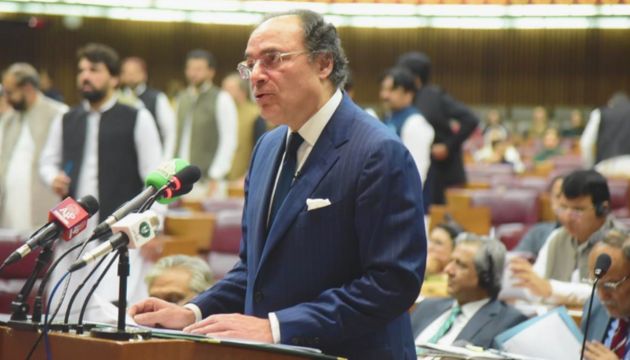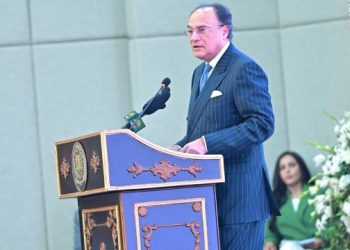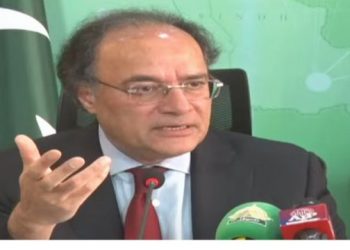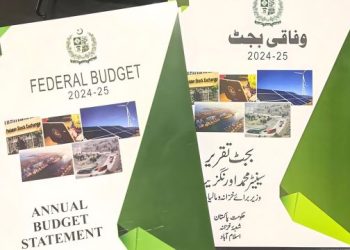ISLAMBAD: Finance Minister Muhammad Aurangzeb stated on Saturday that the recently signed IMF bailout agreement would facilitate the achievement of macroeconomic stability.
Following the cash-strapped country’s attainment of a three-year, $7 billion aid package deal with the Washington-based institution, the finance minister commented, providing much-needed respite to the struggling economy.
Aurangzeb stressed the importance of making changes to improve how money is managed by the government, the energy sector, and state-owned businesses. He hopes to accomplish these improvements in the next few years.
The IMF announced that the new loan program, subject to validation by the Fund’s Executive Board, is expected to enable Pakistan to “solidify macroeconomic stability and foster conditions for stronger, more inclusive, and resilient growth.”
Struggling with chronic mismanagement, Pakistan’s economy has teetered on the brink, exacerbated by challenges such as the COVID-19 pandemic, effects of the Ukraine war, supply chain disruptions driving inflation, and severe flooding impacting a third of the country in 2022.
With its foreign currency reserves dwindling, the financially strapped nation faced a debt crisis and was compelled to seek assistance from the IMF, securing its first emergency loan in the summer of 2023.
The latest bailout, in the form of loans to Pakistan, follows the government’s commitment to implementing reforms, including a significant push to expand the country’s tax base.
In a nation with a population exceeding 240 million, where the majority of jobs are in the informal sector, only 5.2 million individuals filed income tax returns in 2022.
During the fiscal year 2024-25, starting July 1, the government aims to raise nearly $46 billion in taxes, marking a 40% increase from the previous year.
As part of the effort, earlier this month, the Federal Board of Revenue (FBR) blocked 210,000 SIM cards of users who had not filed tax returns to expand the revenue base.
Pakistan began discussions with the lender for a new multi-billion dollar loan agreement—its 24th bailout in over six decades—to support its economic reform program.
While approximately 40% of the population already lives below the poverty line, the World Bank warned in April that an additional 10 million Pakistanis could fall below this threshold.














